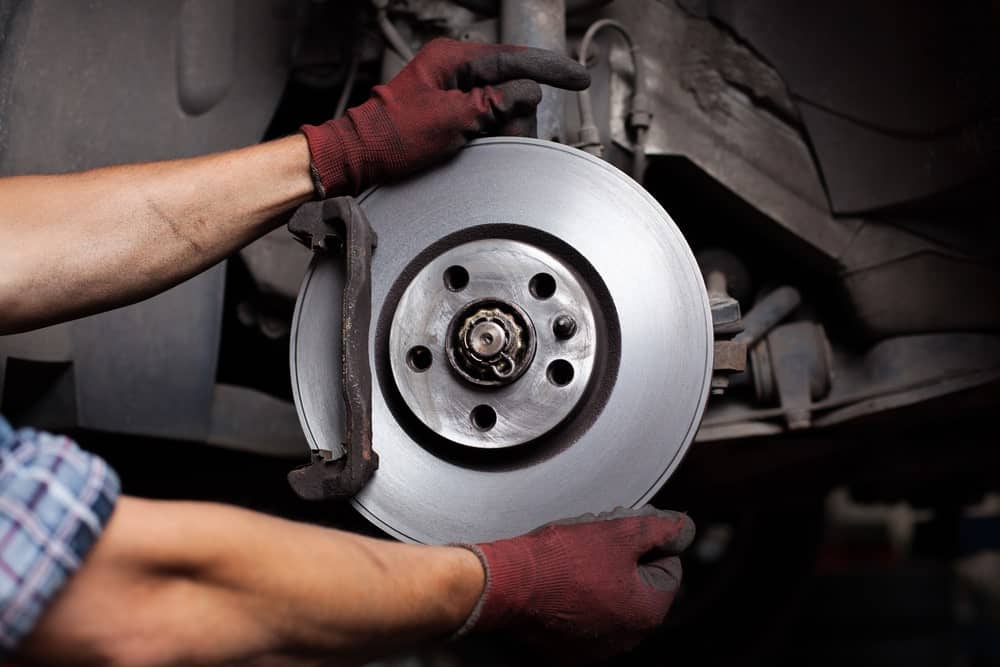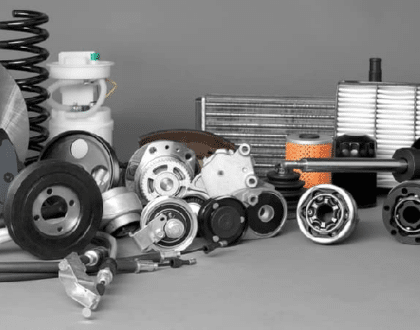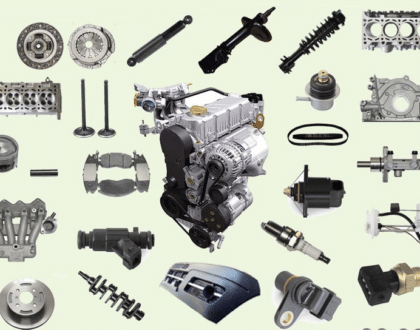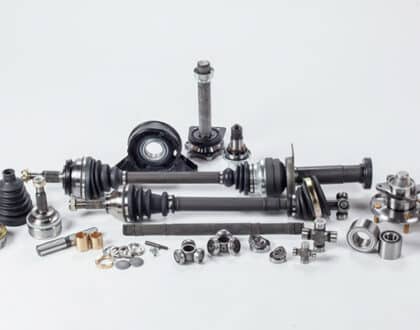5 Signs Your Brake Pads Need To Be Replaced

Your vehicle’s most important safety feature is its brakes. You expect your brakes to respond promptly when you hit the pedal. Brake pads, on the other hand, wear out with time. If the brakes are neglected, they may fail at the last moment, forcing you to swerve to avoid an accident. Your brakes will receive the extra attention they require with proper brake maintenance. When the brake pads are in poor condition, they can only perform efficiently. For brake pads, there isn’t a one-size-fits-all maintenance schedule. Because everyone drives differently, brake pads should be replaced based on your driving patterns.
Your automobiles’ brakes are one of the most important car spare parts. You must examine the condition of your brakes to keep yourself and others safe on the road. Generally, brake pads should be replaced after every 50,000 miles. However, each vehicle is unique, and there are several warning signals that you may require new brake pads.
Many automobile owners don’t think of brake maintenance as a priority until something goes wrong. Make certain you don’t make the same error. When you step on the brakes, a complicated system of pieces goes into play. Certain elements must be replaced regularly for the system to function correctly. Your brake pads are one of those components that you’ll probably replace the most frequently. Here are five telltale signals that it’s time to replace your brake pads.
-
Brakes Making a Squeaking or Squealing Noise
Consider the following scenario: You’re driving with the windows pulled up, and the radio turned off. You hear a faint scraping, screeching, or buzzing sound amid the relative silence. You also notice that the odd noise disappears when you apply the brakes, only to reappear as soon as you take off your foot from the brake pedal. What exactly is going on here?
If you hear squeaking or screaming regularly, it’s time to change your brake pads. Although squeaky brakes are standard in some weather circumstances—for example, rain—having squeaky brakes in all weather conditions signals a problem. If your brakes continue to squeal, it’s important to have your vehicle and brakes inspected by a specialist.
-
Indicator Light Turns On
The indication light turning on is another hint that it’s time to change your brake pads. When the brake pads become worn down, a sensor on the brake pad will trigger in some models of cars. If your brake light comes on, you should have a professional inspect your brake pads and advise you on when they should be replaced.
-
Deep Grinding Metal Sound
Another sign that your brake pads need to be replaced is if you hear a deep grinding metal sound. Small metal ridges are inserted into the bottom of some brake pads to generate loud noise and inform the driver that it’s time to replace the brake pads. If you hear a heavy grinding sound, take your automobile to an auto professional as soon as possible. Allowing the metal ridges to grind against other metal sections of your tire can cause significantly more damage, necessitating more extensive repairs and replacements than just brake pads.
-
Vibrating Brake Pedal
A vibrating brake pedal is the fourth symptom that it’s time to change your brake pads. If stopping your automobile with your existing brake pedal is difficult, and it vibrates or feels wobbly when you press down, your brake pads are worn out. A vibrating brake pedal is not normal, and it’s critical to have your car evaluated right away to avoid any further damage or a potential accident.
A brake pedal that pulsates isn’t one to trust. If you ignore this problem, your ability to break properly may be jeopardized. When it comes to brake pad maintenance, stay careful and don’t put it off.
-
It takes more time than it used to, to bring the car to a complete stop
“Brake fade” is the name given to this phenomenon. It’s usually the result of deliberately using the brakes over a long distance without bringing the car to a complete stop. This technique may occasionally be required while driving down a mountainside or over a curving road. However, if you do this regularly—for example, if you live in a hilly location and must frequently go downhill—it will wear out your braking system over time. Both the brake pads and the rotors will heat up if they are forced to make contact for an extended amount of time. Their capacity to generate necessary friction against one other is hindered due to this process. As a result, your car will take longer to come to a complete stop than it used to.
Summing Up
Having your tires changed every six months is one strategy to extend the life of your brakes. This will prevent your tires from becoming worn down in one place. Taking the necessary precautions to verify that your brake pads are still in good working order and having them replaced regularly will help you avoid more serious braking damage. You may be proactive and save money in the long run by keeping an eye on these indicators of worn-down brake pads.
If you are in search of the original brake pads for your car. NMSD Parts, based in Dubai, cares for your automobiles and delivers them on time. It supplies all the original and genuine automobile spare parts to various companies. Contact NMSD Parts for all your braking needs if you need your brake pads evaluated because of the above five indicators or if you have any other worries.
Recommended Posts

Why Quality Spare Parts Matter for Your Ford Vehicle
July 22, 2024




